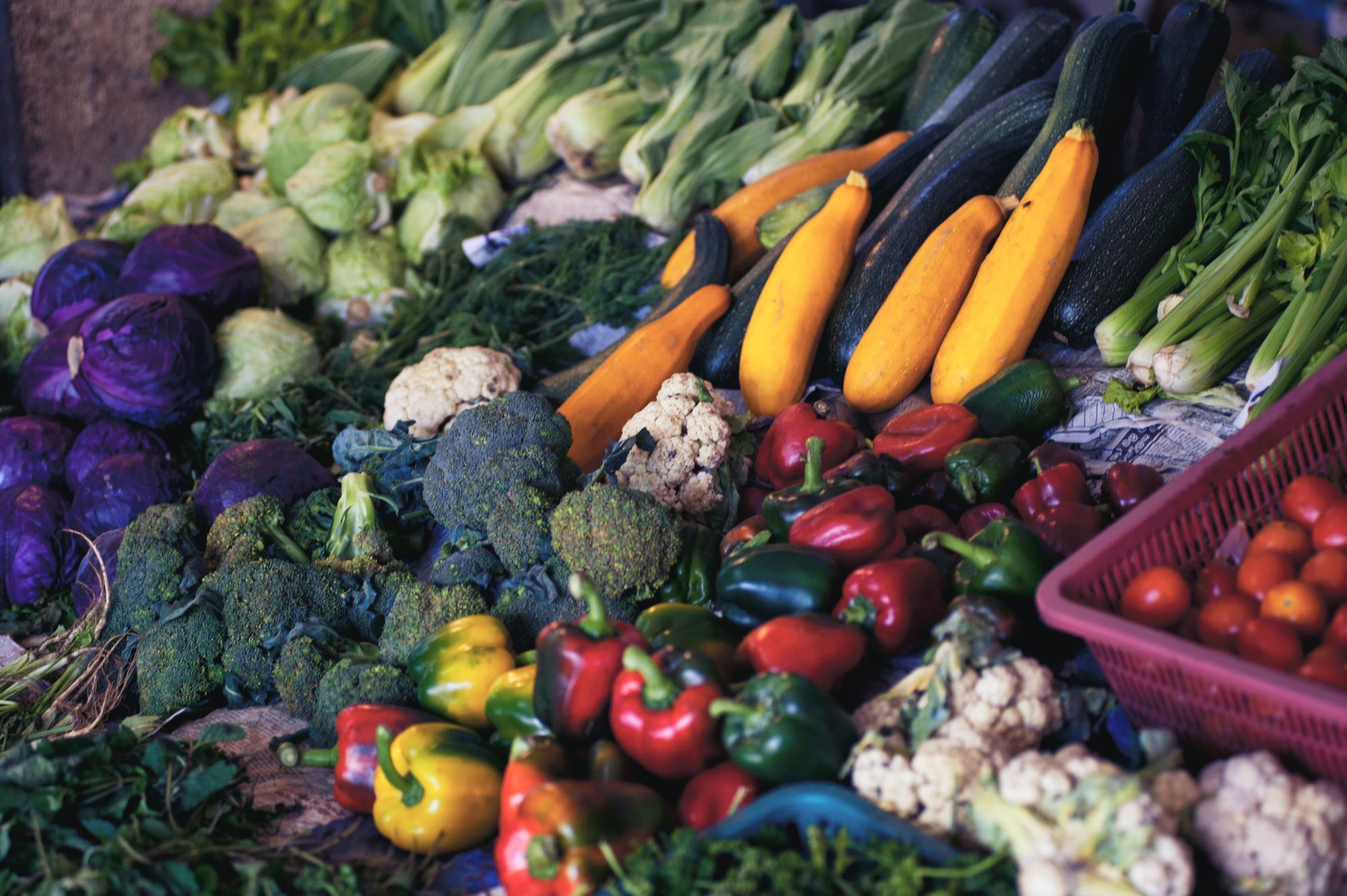We are fortunate in the Tri-Cities to live in an agriculturally rich community. In the coming weeks, a multitude of Farmer’s Markets will be opening up in the area, providing a plethora of locally grown and often certified organic food options. Eating food grown in your community not only supports local families, farmers, and businesses, it also improves your gut health by feeding your microbiome.
What is your microbiome?
Our microbiome consists of all the microbes (bacteria, viruses, fungi, etc.) that live both on and inside our bodies. More than 50% of our cells are not human cells but these microbes. The microbiome has been shown to be a commensal organism, meaning it has an effect on our health and wellness. The intestinal microbiome has been well studied and shown to have a major impact on:
● nutrient uptake
● vitamin synthesis
● energy harvest
● carcinogen metabolism
● host immune response
● chronic inflammation
● colonization resistance against intestinal pathogens
Emerging research supports the notion that the health of our intestinal microbiome is directly related to the foods we eat. For example, one study found that consumption of whole fruits was associated with increased species from the Firmicutes phylum, known to be efficient at producing small chain fatty acids which are anti-inflammatory.
Conversely, consumption of added sugar, alcohol, and saturated fat were associated with an increase in Eschericia coli and Fusobacteria, both of which are inducers of inflammation and markers of dysbiosis (microbial imbalance). Fusobacterium nucleatum is a particularly ominous species which has been shown to promote carcinogenesis and is associated with Inflammatory Bowel Disease and colorectal cancer.
Why is Locally Grown Food Better?
When you eat food that was grown locally, there is less time between when the food was harvested and when you purchase it. That means there is less time for the food to lose nutrients (nutrients begin to decline after only 24 hours!).
It also tastes better since it is picked at peak ripeness. Food that has to travel across the country has to be harvested before peak ripeness because of the time needed to reach the grocery store where it will be sold. Again, nutrients are lost during this process.
Why is this important for the intestinal microbiome? Just like us, the microbiome requires nutrients to survive. Particular nutrients of importance for this population are phytochemicals and fiber, both of which are found abundantly in fresh fruits and vegetables.
Food is Medicine
Food is medicine, so it is critical that we feed our gut health by choosing foods that will decrease inflammation and keep our whole body in balance. Many chronic medical conditions can be reversed or improved by simply changing a person’s diet. Examining your nutrition and lifestyle habits is one of the many facets we examine as part of your health action plan at Empowered Health.
To feed your microbiome, you want to consume foods that are plant-based. Whole grains, legumes, nuts and whole foods that are unprocessed (or processed very little) will help your gut function at optimal performance. Animal product foods like meat, dairy yogurt, cheese, and butter should be ingested in moderation. If possible, choose animal products from grass-fed animals.
Growing Your Own Immune-Boosting Herbs
Another way to feed your microbiome and make your food tastier is to grow your own herbs! An herb garden can be a very easy summer project that yields tasty results.
Herbs are full of antioxidants. Consumption of these phytonutrients can reduce the effects of oxidative stress, helping reduce the risk of—or prevent the onset of—chronic diseases and some cancers. Our top suggestions include basil, oregano, parsley, and cilantro.
Growing them yourself, you can ensure they are picked at peak nutrient density, providing the most benefits toward boosting your body’s natural defense systems.
Knowing how to store them can ensure you have fresh herbs even through the winter months. There are a couple of options you can use: drying or freezing. For herbs with a high moisture content like basil, it’s recommended to use a dehydrator or to just freeze them. For low-moisture herbs like oregano, air drying or using a dehydrator is best. Alternatively, you can store the herbs in oil for quick, flavorful infusions.
Dr. Schneider is the CEO and founder of Empowered Health, located on the Parkway in Richland. She is board certified in Internal Medicine through the American Board of Internal Medicine and has completed a fellowship in Integrative Medicine through the University of Arizona studying under Andrew Weil, MD. She has training through the Institute of Functional Medicine at Cleveland Clinic. Dr. Schneider grew up locally in Richland and graduated from Hanford High School. She received a Bachelors of Science in Biochemistry from Washington State University. She feels passionate about promoting health and enjoys working with patients to achieve their own health goals.
Erika Zink is a Functional Medicine Certified Health Coach through the Functional Medicine Coaching Academy with a Master’s of Science in Chemistry from WSU Tri-Cities.
Photo by Alexandr Podvalny on Unsplash



